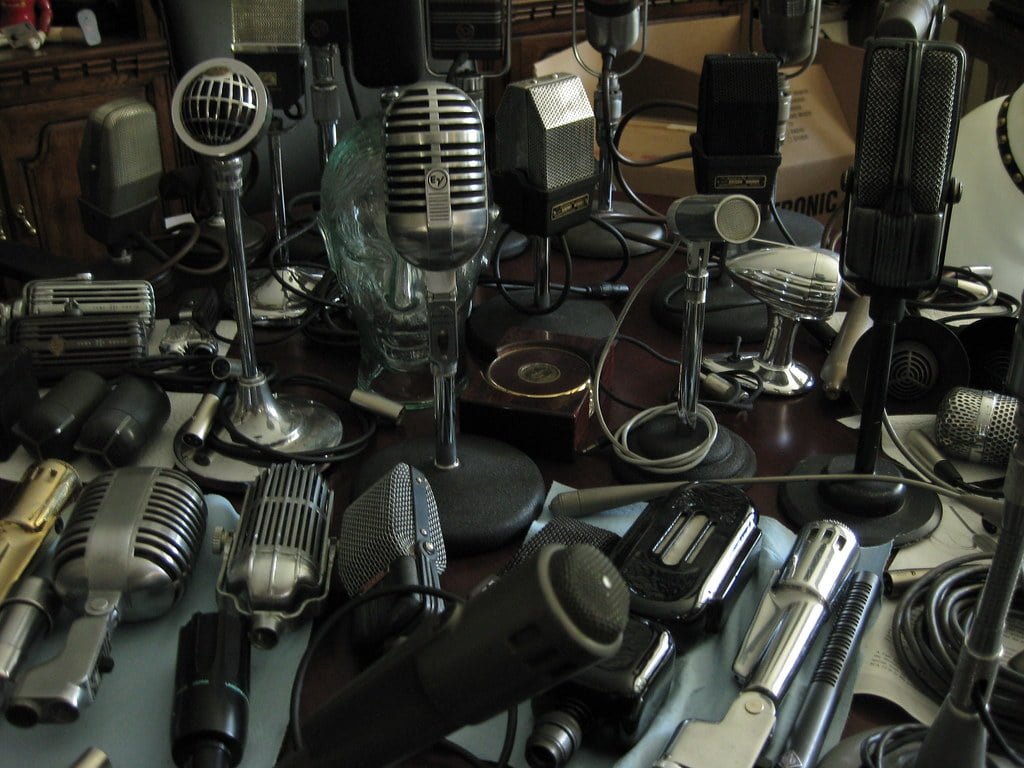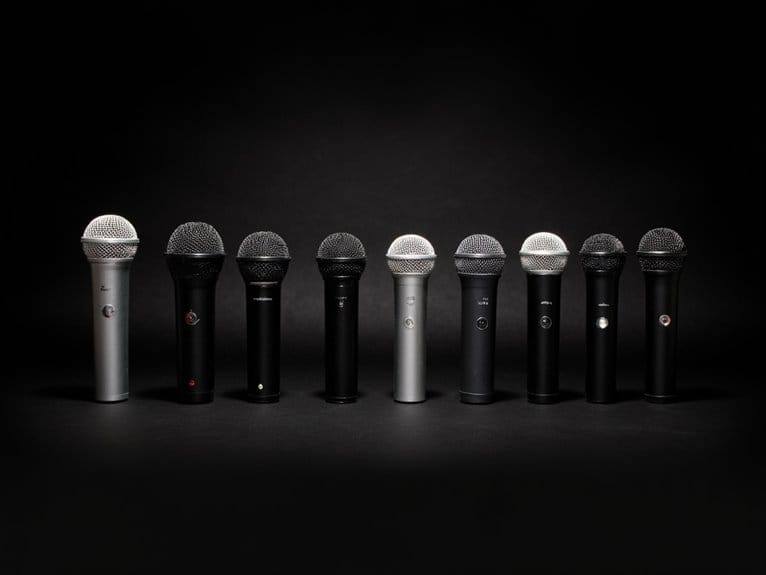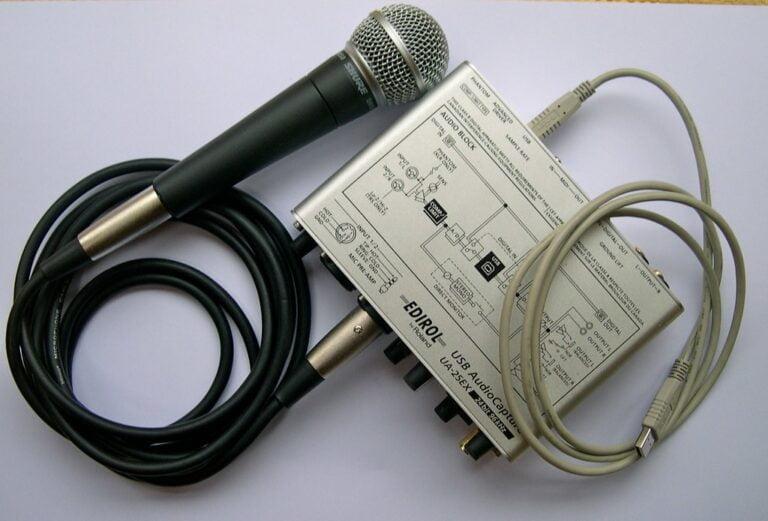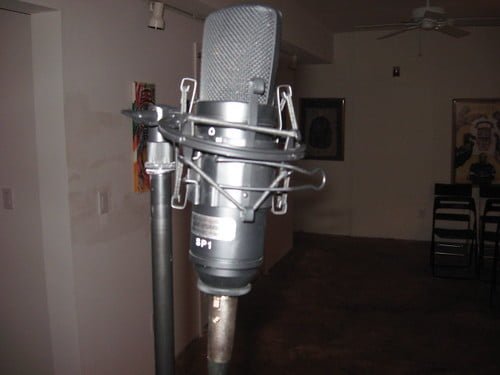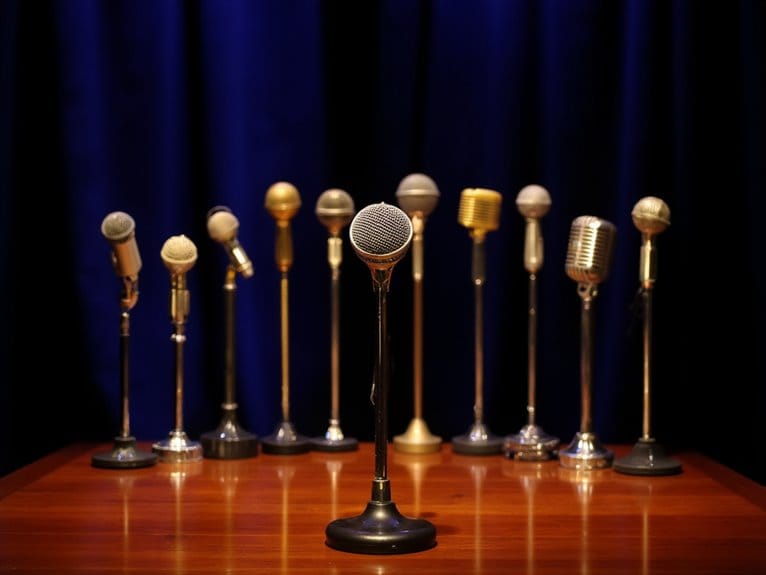Maintaining Your Microphones: Cleaning, Storage, and Preventive Care
Hey there! Looking to keep your microphones in tip-top shape? Well, you've come to the right place! In this article, we're going to walk you through the essential steps to maintain your microphones. We'll cover everything from cleaning to storage and preventive care. Trust me, proper maintenance is key to prolonging the lifespan of your precious mics.
We are supported by our audience. When you purchase through links on our site, we may earn an affiliate commission, at no extra cost for you. Learn more.
Now, let's dive into the nitty-gritty of microphone maintenance. First things first, let's talk about cleaning. Have you ever wondered why cleaning your microphones is so important? Well, think about it this way: just like you wouldn't want to eat off a dirty plate, you shouldn't want to record with a dirty microphone either, right? Cleaning not only helps maintain the audio quality but also prevents any potential damage caused by dirt or debris. We'll show you some effective cleaning techniques that will have your microphones looking and sounding brand new.
Next up, we'll discuss storage. Now, imagine you're a microphone and your owner neglects you by tossing you into a dusty drawer or leaving you exposed to extreme temperatures. How would that make you feel? Not so great, huh? Well, the same goes for your microphones. Proper storage is crucial to protect them from any harm. We'll guide you on the best practices for storing your microphones, ensuring they're safe and sound until your next recording session.
Lastly, we'll touch on preventive care. Think of it as giving your microphones a little extra love and attention. We'll share some expert tips on how to prevent common issues that can arise with microphones. By taking proactive measures, you can avoid potential problems and keep your mics performing at their best.
Oh, and speaking of expert tips, we'll also point out some common mistakes to avoid. You wouldn't want to accidentally damage your microphones, right? We've got your back, so we'll make sure you know what not to do.
So, are you ready to optimize your microphone performance and extend their lifespan? I thought so! Get ready to become a microphone maintenance guru. Let's do this!
Importance of Microphone Maintenance
You should regularly and diligently prioritize the maintenance of your microphones to ensure their optimal performance. Microphone maintenance plays a crucial role in achieving high-quality sound reproduction and extending the lifespan of your equipment. The first step in proper maintenance is to regularly clean your microphones. Use a soft, lint-free cloth or a brush to remove any dust or debris from the microphone's exterior and grille. Be careful not to apply excessive pressure or use harsh cleaning agents that could damage the delicate components. Additionally, it is essential to store your microphones properly when not in use. Keep them in a clean and dry environment, away from extreme temperatures and humidity. Finally, implementing preventive care measures like using windshields and shock mounts can help minimize the risk of damage and ensure consistent performance. By following these maintenance practices, you can maximize the longevity and performance of your microphones.
Cleaning Techniques for Microphones
To effectively clean your microphones, start by using a soft cloth or brush to remove dust and debris from the exterior and grille. This step is crucial as dust and debris can negatively affect the sound quality and performance of your microphones. Make sure to gently wipe or brush in a circular motion to avoid damaging the delicate components. For stubborn dirt or grime, you can dampen the cloth slightly with a mild cleaning solution or isopropyl alcohol. However, it is important to avoid getting any liquid into the microphone's internal components. After cleaning the exterior, focus on the grille, which often accumulates the most dirt and debris. You can use a small brush or a can of compressed air to remove any particles lodged in the grille. Remember to hold the can of compressed air at a safe distance to prevent any damage. Regular cleaning of your microphones will help maintain their performance and extend their lifespan.
Proper Storage for Microphones
To properly store your microphones, it is important to consider the environment in which they will be kept. The first step is to find a storage area that is dry and free from extreme temperature fluctuations. Humidity and temperature changes can damage the internal components of the microphone, affecting its performance and longevity. It is recommended to store your microphones in a dedicated case or bag that provides adequate protection from dust, moisture, and physical impact. Avoid storing your microphones in direct sunlight or near heat sources, as this can cause damage to the microphone's delicate diaphragm. Additionally, it is important to properly wind the microphone cables to prevent tangling and strain on the connectors. By following these storage guidelines, you can ensure the longevity and optimal performance of your microphones for years to come.
Preventive Care Practices for Microphones
Regular maintenance is key to ensuring the longevity and optimal performance of your microphones. Preventive care practices play a crucial role in keeping your equipment in top-notch condition. Firstly, always handle your microphone with care, avoiding dropping or mishandling it, as this can cause internal damage. Additionally, it is essential to regularly check and clean the connectors and cables to prevent any signal loss or interference. Use a mild cleaning solution and a soft cloth to gently wipe away dirt and grime. Furthermore, protect your microphone from extreme temperatures and humidity by storing it in a dry, climate-controlled environment. Avoid exposing your microphone to direct sunlight or placing it in areas with excessive dust. By following these preventive care practices, you can ensure that your microphones consistently deliver exceptional sound quality and maintain their performance for years to come.
Common Mistakes to Avoid in Microphone Maintenance
When maintaining your microphones, it is important to be aware of common mistakes to avoid in their maintenance. One common mistake is using harsh cleaning agents or solvents on the microphone diaphragm. These can damage the delicate components and affect the microphone's performance. Instead, use a soft, lint-free cloth and mild cleaning solutions specifically designed for microphones. Another mistake to avoid is neglecting to clean the connectors and cables. Over time, dust and debris can accumulate, leading to poor connectivity and signal loss. Regularly inspect and clean the connectors using compressed air and contact cleaner. Additionally, mishandling or dropping the microphone can cause internal damage, affecting its sensitivity and frequency response. Always handle the microphone with care and use protective cases during transportation. By avoiding these common mistakes, you can ensure optimal performance and longevity of your microphones.
Tools and Products for Cleaning Microphones
When cleaning your microphones, it is essential to have the right tools and products at your disposal. To effectively clean your microphones, you will need a few key items. First, a soft, lint-free cloth is crucial for wiping away any dust or smudges on the microphone's exterior. Microfiber cloths are recommended for their ability to trap dirt particles without scratching the surface. Additionally, a can of compressed air is useful for removing debris from hard-to-reach areas, such as microphone grilles. It is important to use the air canister at a safe distance to prevent any damage to the microphone. For more stubborn dirt or grime, a mild cleaning solution specifically designed for microphones can be used. Be sure to follow the manufacturer's instructions when using any cleaning products. By having these tools and products on hand, you can ensure that your microphones remain clean and well-maintained, prolonging their lifespan and maintaining optimal performance.
Recommended Frequency for Microphone Maintenance
To ensure the longevity and optimal performance of your microphones, it is important to establish a regular maintenance schedule. By adhering to a recommended frequency for microphone maintenance, you can prevent potential issues and keep your equipment in top condition. The frequency at which you should perform maintenance will depend on various factors, such as the type of microphone, the environment it is used in, and the intensity of its usage. Generally, it is recommended to clean your microphones after each use or at least once a week if they are regularly used. Additionally, it is important to inspect and test your microphones periodically to ensure there are no technical issues or damages. By following a regular maintenance schedule, you can prolong the lifespan of your microphones and ensure consistent, high-quality performance.
Expert Tips for Extending Microphone Lifespan
To extend the lifespan of your microphones, utilize proper care and maintenance techniques. Here are some expert tips to help you maximize the longevity of your equipment. First, always handle your microphones with care, avoiding dropping or mishandling them. Additionally, be mindful of the environment in which you use your microphones. Excessive humidity or extreme temperatures can damage the internal components. It is also crucial to regularly clean your microphones to remove dirt, dust, and debris that can affect their performance. Use a soft brush or cloth to gently clean the grill and ensure that no particles are blocking the sound input. Lastly, store your microphones in a safe and dry place, preferably in a protective case, to prevent any accidental damage. By following these expert tips, you can ensure that your microphones last for years to come, allowing you to focus on your audio production without worrying about equipment failures.
Conclusion
In conclusion, maintaining your microphones is crucial for ensuring optimal performance and longevity. By regularly cleaning your microphones using appropriate techniques and storing them properly, you can prevent damage and extend their lifespan. It is important to avoid common mistakes in microphone maintenance and use the right tools and products for cleaning. Following these preventive care practices will help you maintain the quality of your microphones and avoid costly repairs or replacements.

